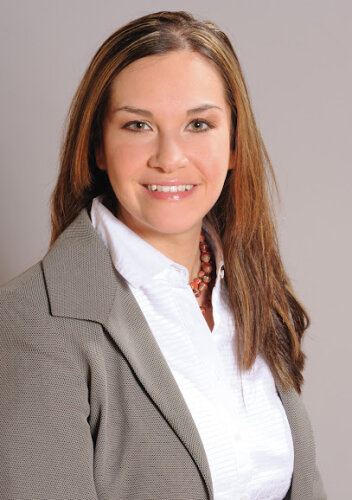Best Criminal Litigation Lawyers in Chicago
Share your needs with us, get contacted by law firms.
Free. Takes 2 min.
List of the best lawyers in Chicago, United States
About Criminal Litigation Law in Chicago, United States
Criminal litigation refers to the legal process of resolving criminal disputes in court. In Chicago, United States, criminal litigation encompasses the prosecution and defense of individuals accused of committing criminal offenses. The purpose of criminal litigation is to ensure justice is served and to determine the guilt or innocence of the accused.
Why You May Need a Lawyer
There are various situations where you may require the assistance of a lawyer in criminal litigation:
- If you have been accused of committing a crime, it is crucial to have a lawyer who can protect your rights, build a strong defense, and represent you in court.
- If you have been a victim of a crime, a lawyer can help you navigate the legal system, provide guidance on your rights, and assist you in seeking justice.
- If you are a witness in a criminal case, a lawyer can help you understand your role, prepare you for testifying, and ensure your rights are protected throughout the process.
- If you are involved in any criminal legal matter in Chicago, a lawyer can provide legal advice, guide you through complex procedures, and advocate for your best interests.
Local Laws Overview
Chicago has specific laws and regulations that are relevant to criminal litigation. Some key aspects include:
- Chicago follows Illinois state laws regarding criminal offenses, sentencing guidelines, and procedures.
- Common criminal offenses prosecuted in Chicago include theft, assault, drug offenses, DUIs, and white-collar crimes.
- The Cook County Circuit Court handles criminal cases in Chicago, and each case progresses through various stages such as arraignment, pre-trial hearings, trial, and sentencing.
- It is important to be aware of local ordinances and regulations that may impact specific criminal offenses in Chicago, such as drug-free zones, concealed carry laws, and traffic violation penalties.
Frequently Asked Questions
Q: What are the possible penalties for a criminal offense in Chicago?
A: The penalties for criminal offenses in Chicago vary depending on the nature and severity of the crime. They may include fines, probation, community service, jail time, or in serious cases, imprisonment. A lawyer can explain the potential penalties specific to your situation.
Q: Can I represent myself in a criminal case in Chicago?
A: Yes, you have the right to represent yourself in a criminal case in Chicago. However, it is highly recommended to seek legal representation as a lawyer can provide you with expertise, protect your rights, and navigate complex legal procedures on your behalf.
Q: How can I find a qualified criminal litigation lawyer in Chicago?
A: You can find a qualified criminal litigation lawyer in Chicago by seeking recommendations from trusted sources, such as friends, family, or other legal professionals. Additionally, local bar associations, online legal directories, and legal aid organizations can provide resources and referrals.
Q: What should I do if I am arrested in Chicago?
A: If you are arrested in Chicago, it is crucial to remain calm and remember your rights, including the right to remain silent and the right to an attorney. Cooperate with law enforcement within legal limits, seek legal representation as soon as possible, and refrain from providing any statements without the presence of your lawyer.
Q: How long does the criminal litigation process typically take in Chicago?
A: The duration of the criminal litigation process in Chicago varies depending on multiple factors, such as the complexity of the case, court availability, and the defendant's plea. Some cases may be resolved quickly, while others can take several months or even years to reach a resolution.
Additional Resources
Here are some resources that can be helpful for someone in need of legal advice regarding criminal litigation in Chicago:
- Illinois Legal Aid Online: Provides legal information, self-help resources, and referrals to legal aid organizations in Illinois. Visit their website at www.illinoislegalaid.org.
- Cook County Public Defender's Office: Offers legal representation to individuals who cannot afford a lawyer. You can find more information at their website: www.cookcountypublicdefender.org.
- Chicago Bar Association: Provides lawyer referrals and resources for individuals seeking legal assistance in Chicago. Visit their website at www.chicagobar.org.
Next Steps
If you require legal assistance in criminal litigation in Chicago, consider taking the following steps:
- Contact reputable criminal litigation lawyers in Chicago for consultations to evaluate their experience and suitability for your case.
- Gather all relevant documents and information regarding your criminal matter.
- Discuss your case thoroughly with the lawyer you choose, ensuring you understand the potential outcomes, legal strategies, and associated fees.
- If you decide to retain a lawyer, ensure you have a written agreement detailing the scope of their services, fees, and any specific terms or conditions.
- Cooperate with your lawyer throughout the legal process, providing all necessary information and following their guidance in preparing for court appearances, negotiations, or trial, if applicable.
Lawzana helps you find the best lawyers and law firms in Chicago through a curated and pre-screened list of qualified legal professionals. Our platform offers rankings and detailed profiles of attorneys and law firms, allowing you to compare based on practice areas, including Criminal Litigation, experience, and client feedback.
Each profile includes a description of the firm's areas of practice, client reviews, team members and partners, year of establishment, spoken languages, office locations, contact information, social media presence, and any published articles or resources. Most firms on our platform speak English and are experienced in both local and international legal matters.
Get a quote from top-rated law firms in Chicago, United States — quickly, securely, and without unnecessary hassle.
Disclaimer:
The information provided on this page is for general informational purposes only and does not constitute legal advice. While we strive to ensure the accuracy and relevance of the content, legal information may change over time, and interpretations of the law can vary. You should always consult with a qualified legal professional for advice specific to your situation.
We disclaim all liability for actions taken or not taken based on the content of this page. If you believe any information is incorrect or outdated, please contact us, and we will review and update it where appropriate.











